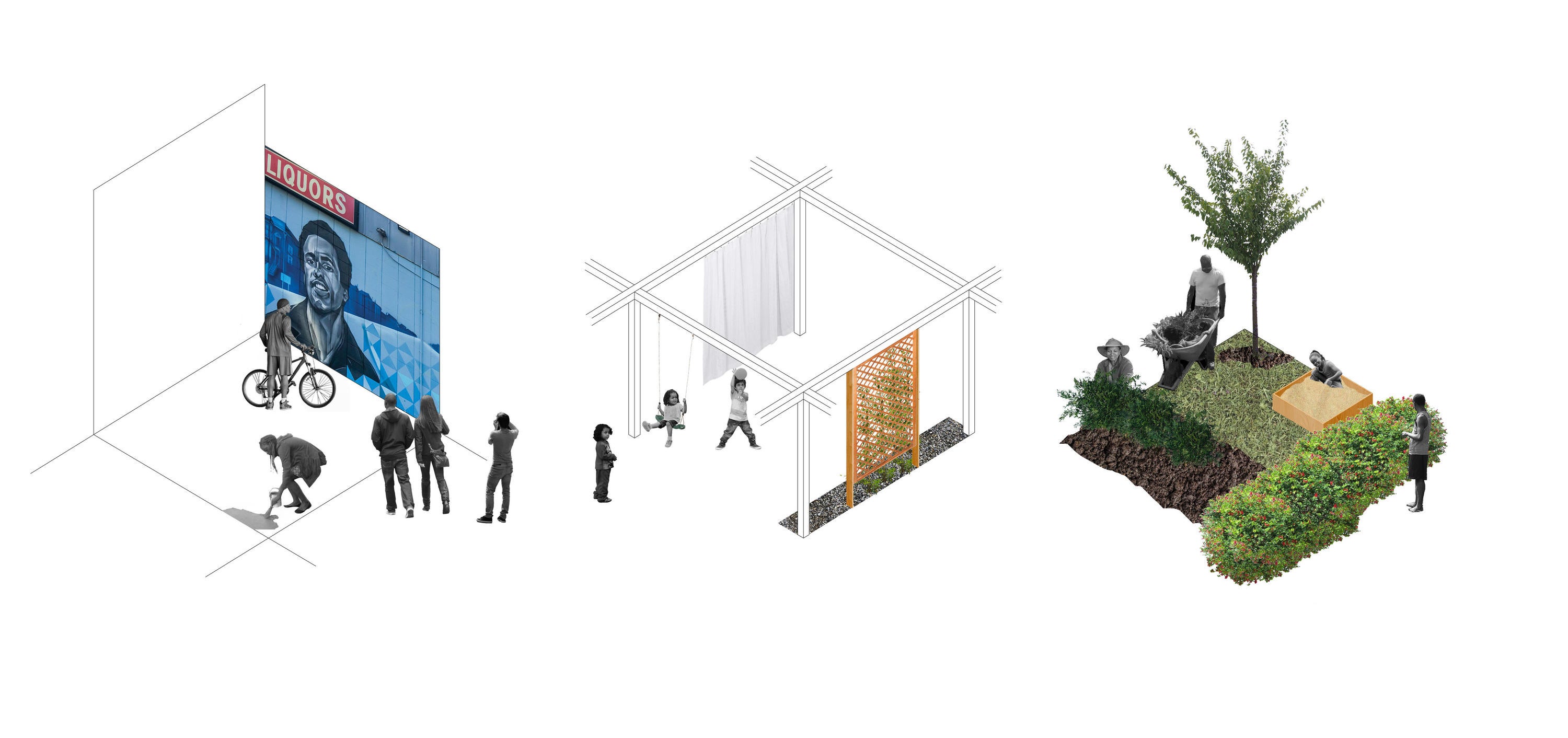
Of the thesis entitled: A Commons for Resistance
Abstract:
The housing crisis is Oakland is starkly visible. In recent years, the tech boom in Silicon Valley has drastically increased costs of living in the Bay Area. Many workers from San Francisco and the peninsula have relocated across the Bay to Oakland, in search of more affordable rent, spurring a wave of gentrification and displacement in the city. Since 2000, Oakland has lost 29% of its Black popuation1. The Bay Area is gradually being re-segregated, as gentrification forces lower-income residents, often people of colour, to relocate to peripheral cities.
A Commons for Resistance examines the current crisis through a dialectic of commons space and enclosures. Commons spaces are spaces that are produced by all, and shared by all, while enclosures are spaces controlled by an exclusive group in society, which produce benefits for that group to the exclusion of all others. The thesis posits that Oakland’s current crisis is made possible by- and perpetuates- a history of enclosure in the city, which has created the inequality necessary for gentrification and displacement to occur. Policies of enclosure (for example, redlining, predatory lending, and Urban Renewal) organize domestic space, in turn generating the inequalities currently visible in the urban landscape.
Using this theoretical framework of commons and enclosures, the thesis also surveys current state, market and individual tactics addressing the crisis, revealing that most measures accept a default association between housing and private profit, and have limited effectiveness in adequately addressing the shortage of affordable housing. The thesis argues that for housing to be truly affordable, it must be a common right, detached from motives of profit.
The design response draws upon Oakland’s deep history of social justice activism, and the radical practices for living together that have emerged in its communities’ struggles to reclaim the commons. It advocates for a vision of housing embedded within the urban commons, kept perpetually affordable through a community land trust, a model of housing provision that is gaining clout in Oakland and in cities across the world facing gentrification pressures. An architecture of scaffolding is proposed for this model and applied in the design of three sites in Deep East Oakland. The scaffold refers a guiding framework for community involvement in the design and construction processes for these interventions. As well, the scaffold is an exploration of how architectural forms (surfaces, structures and landscapes) could contribute to the collective stewardship of space.
It is not the place of this thesis, written from an outsider’s perspective, to offer a definitive set of steps to solve the housing crisis. Instead, by learning from the crisis in Oakland and the collective efforts to combat it, A Commons for Resistance adds a voice to the growing, global call to see housing as a collective responsibility, offering a set of suggestions and provocations that illustrate the potentials of dwelling in the commons.
1 1 US Census Bureau, 2010 American Community Survey 1-Year Estimates, Table B03002, 2000).; US Census Bureau, 2016 American Community Survey 1-Year Estimates, Table B03002, 2016).
Supervisor:
Adrian Blackwell, University of Waterloo
Committee Members:
Jane Hutton, University of Waterloo
Marie-Paule Macdonald, University of Waterloo
External Reader:
Kuni Kamazaki, PARC, Parkdale Land Trust and University of Toronto
The
committee
has
been
approved
as
authorized
by
the
Graduate
Studies
Committee.
The
Defence
Examination
will
take
place:
Tuesday,
May
8,
2018
1:00
PM
ARC
3003
A
copy
of
the
thesis
is
available
for
perusal
in
ARC
2106A.